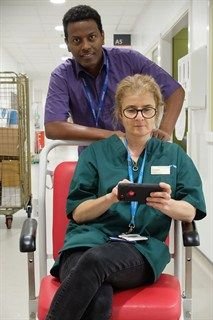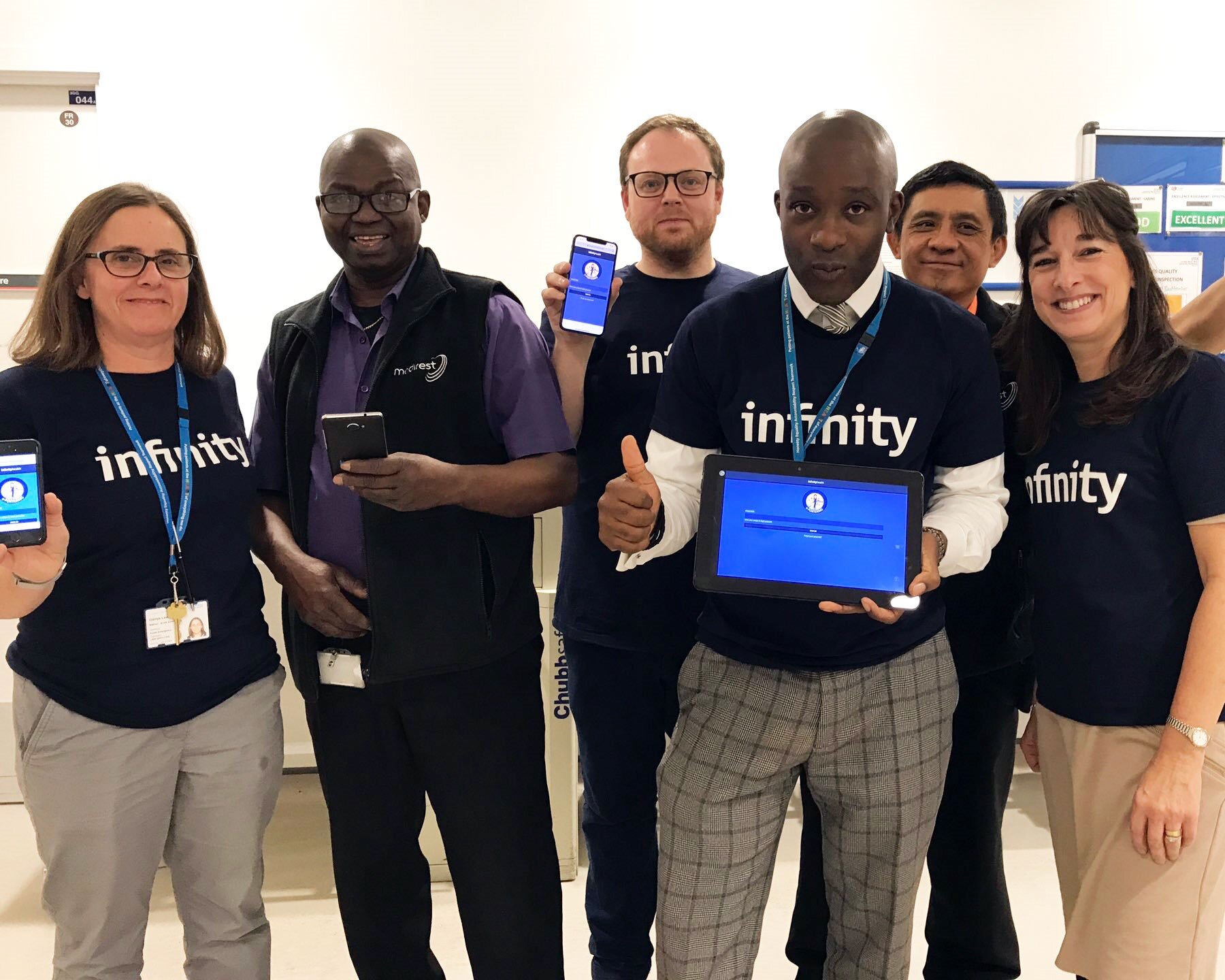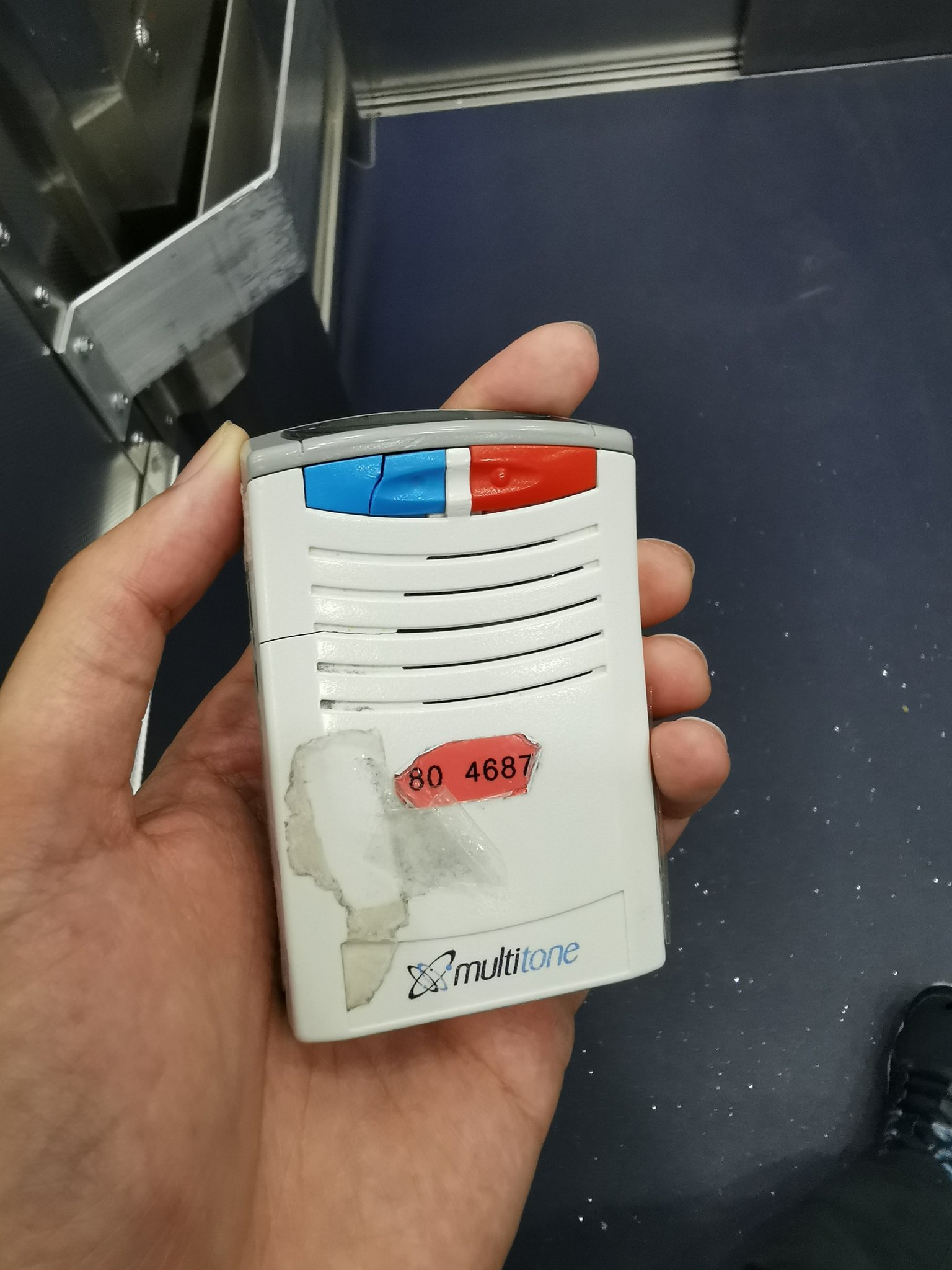How to improve hospital portering
What is a hospital porter?
An NHS porter at London North West University Healthcare Trust
NHS porters are vital members of hospital teams, providing support to all departments and ensurinFg patients and items are transferred to and from the right locations safely and efficiently.
Hospital porters deliver meals, transfer patients, deliver specimens and samples to the labs, move medical equipment, support pharmacy collections and deliveries, and much more.
NHS porters may be employed directly by the hospital, or in some cases, through a third-party hospital porter provider.
Why hospital porters are vital
A hospital porter in the Emergency Department
Porters are essential to the smooth running of the hospital, and their roles can have an impact on patient flow. Not only do they make sure crucial goods and items are delivered where they are needed most, hospital porters also ensure patients are at the right place at the right time to get the treatment they need.
NHS porters’ roles often involving move very sick and vulnerable patients, so a large part of their role is also talking to patients, and providing reassurance and comfort as they transfer between parts of the hospital.
Challenges in managing NHS portering
Despite its importance, hospital portering is a historically underfunded area of the NHS which has not seen much technological change compared with other departments.
Reliance on phone calls
Many hospitals have a porter dispatcher – someone at a desk in a control room who takes porter requests from the entire hospital via phone call. Porters must physically go to the control room to pick up their next job.
Staff calling to request a porter may often find the phone engaged, so have to call multiple times to get through. Once a request has been made, the requestor has no way of knowing which porter will come and when, or of tracking the progress of the job.
Reliance on paper
Some departments do not have a porter dispatcher; instead health and care staff physically go to a portering station, write their request on a paper list, and return. Porters have no way of knowing who made the request, the name or gender of the patient, or any other information.
Time is wasted in travel to the portering station, cancellations are common, staff have no way to track the progress of requests, and one NHS porter we spoke to described this method as creating a“dehumanising” process for both patients and porters.
An example of an NHS porter request sheet, used in the Emergency Department of a London hospital
Some hospitals use bleeps, radios, or even tannoys to request portering jobs, however they create reliance on maintaining a paper job list and do not give visibility of porters’ jobs.
It’s time to digitise hospital portering
Phone calls, bleeps, paper and multiple visits to portering stations and control centres are inefficient ways to manage hospital portering, and can have a negative impact on patient flow, patient experience, and staff wellbeing.
NHS porters - and porters in other health and care settings - need and deserve more sophisticated tools to do their jobs.
Digital portering technology
Infinity is a task management tool for healthcare that can be used to digitise and manage multiple clinical tasks, or focus on just one - like hospital portering.
As a hospital porter management solution, Infinity allows health and care staff to request a porter from anywhere using a smartphone, tablet, or desktop computer.
Porters have instant and up-to-date information about the patients and items they need to transfer, making it easier to find them and more efficient to allocate each request. They do not have to return to a physical location to pick up the next job, and paper lists are no longer required.
Requesting staff can see in real-time when a transfer is in progress and has been completed, and by who.
Automatic escalation and risk alerts
Infinity automatically escalates porter requests for critical patients, expediting diagnosis, treatment and appropriate transfer, which further improves efficiency, patient flow, and patient outcomes.
Notifications alert key staff if issues arise, whilst reporting dashboards reveal business insights, for example how long certain tasks take and how many jobs are completed in any particular time period. A complete audit trail is recorded for all activity, including reasons for cancellations, which feeds into future planning and improvements.
A complete hospital porter management solution
A hospital porter at Northwick Park Hospital picks up his next job on Infinity
In Northwick Park Hospital, Infinity replaced the old paper system for requesting porters in the Emergency Department, the performance of which has significant consequences on the operational efficiency of the entire hospital.
Porters and clinicians can now work together as a team, with shared information in real-time and increased understanding of one another’s roles. The process is more human and less frustrating for all.
Infinity’s portering platform has helped reduce porter cancellations by over 80%, which has resulted in a reduction of six minutes per porter request. This translates to a saving of more than 10,000 hours each year, equivalent to five full time members of staff.
“It's a giant leap forward from the paper system to wonderful software that gives all the information to porters. They can go to the right place, know the patient's name and have the right equipment. They couldn't read the writing before, now they have all the right information.”
— Porter Supervisor
London North West University Healthcare NHS Trust
Now more than ever, NHS porters - and the hospitals they work in - need to have the right porter management tools for efficient workflows.
If you need help with porter management - in the NHS or otherwise - please get in touch to discuss your needs: [email protected]














